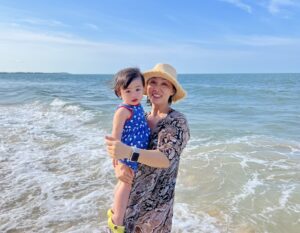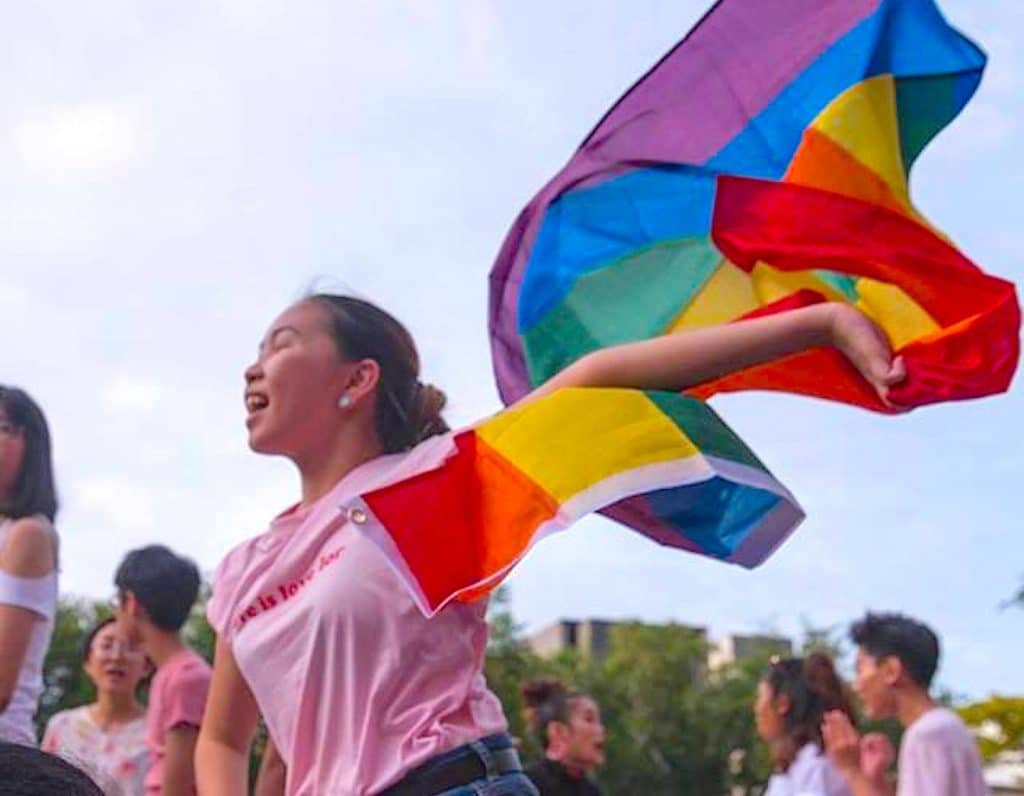
“Mum, there’s something I need to tell you…”
How would you react if your child told you that they were gay, transgender or bisexual? Would you know how to support them? We share five real coming out stories from people in the LGBTQ (lesbian, gay, bisexual, transgender and queer) community in Singapore. They all struggled with their identity, and had a hard time “coming’ out” to their families. Here they share their stories and the support that they received – or wished they would have received – from their parents to live their authentic selves.
Read more: A Singapore Mama’s Journey to Supporting Her Transgender Child
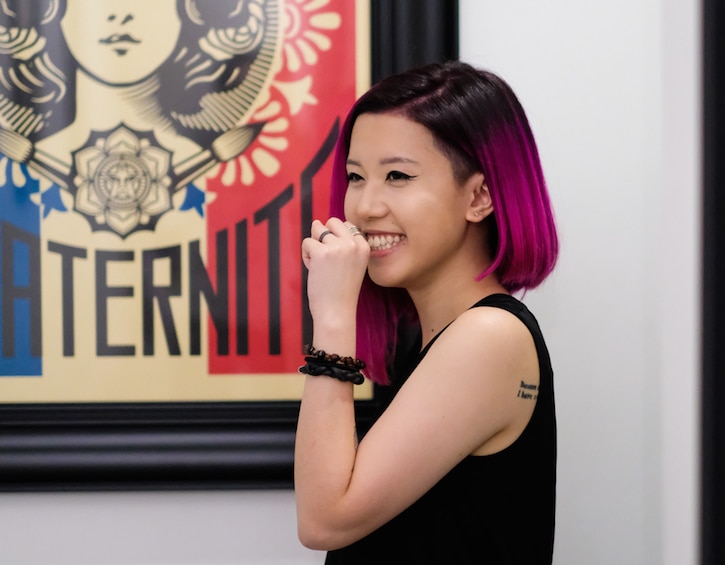
Cally
One of the most common questions I get, usually after disclosing my sexual orientation in a public setting, is, “So when did you know you were a lesbian?” I knew I preferred the company of my own when I was in Primary One. Certainly, it helped that I was enrolled in an all-girl convent school, but what happened was entirely organic. The first day of school, the class was seated according to index numbers and I was seated next to a student that made me think, “She looks great. I wish I could be her.” Three days later, I corrected myself, “I do not want to be her, I want to be with her.” It was that precise moment of clarification and/or realisation that led me to remain steadfast in my commitment to women.
However, growing up in Singapore as a third-culture kid with a migrant family entrenched in values of their homeland and striving to uphold those of their current abode, my journey wasn’t without its own set of challenges. My parents created a familial enclave and I was sheltered from most sociocultural norms. I learnt too late that many things I previously considered “normal” were actually taboo in general society. I was constantly in trouble with disciplinary mistresses (DMs) because I did not understand why girls could not speak privately, hold hands, receive hugs, and don coloured undergarments, among other restrictions. I did not know how to tell my parents as these rules did not make sense outside of the culture enforcing them.
When I was 15, I brought up the notion of same-sex marriages between women to my mother. After five minutes of silence, she responded with a threat to cut off my inheritance if I ever married a woman. Ironically, her response gave me hope because it undermined all sociocultural reasonings to become transactional. In her own way, she was telling me to be pragmatic about my lifestyle. Once, I invited my entire family to Prout’s launch party. The attendance was made up of the LGBTQ+ community, allies, and friends. I gave a speech and declared what I would like to do for people like me. Prout is, and always will, be a platform created by the community, for the community. It was hard for them but at that moment, I showed that I could straddle between my identities as a queer woman, an Asian daughter, an older sister, and an individual with an unwavering passion for food.
Today I am simultaneously realistic and idealistic, demonstrating to my parents that I am conscious of the steps I am taking, and the identity I am championing for, so that they find the space to support me in what is to come. The best support is when parents actively make the change with their children. It is not easy, but no one should be forced to conform to another’s belief. Some days I wish I had the conventional support system with reassuring parents and a momentous “coming out” talk, but it is really more of an ongoing process. After all, affection is never easy for Asian families. Unlike our Western counterparts, we tend to internalise a lot of issues, and we have to counter cultural pride, generation gap, and a lack of awareness and/or education. But I am hopeful it seeps through the fussing, bickering, and silence—into the ruptures created by change.
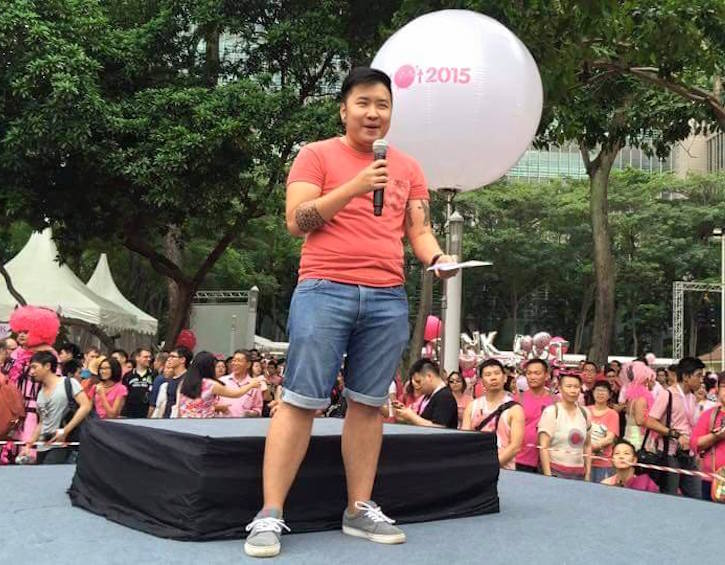
Christopher
“Rocky”. That’s the first ‘boy’ name I gave myself when I was 6 years old. I always try to forget this, but it is something my parents always bring up when we talk about me being transgender. I also remember how they never policed my gender expression, letting me get my hair cut however I wanted, and after I kicked up a fuss about having to wear a Chinese New Year dress at 10, they more or less let me wear whatever I wanted.
That is why I think they reacted the way they did when I was forced to come out. My then-girlfriend’s parents had called my parents, and they assumed I was lesbian. Which I did not identify with, so I came out to them as transgender. In the years after that, there was a lot of crying, and I kept my distance because I was sure they would at some point ask me to leave the home.
That never happened.
Instead, in the struggle of me becoming secure in my identity, they were there. For many years, I never felt ready to meet relatives, but they would always check in. If I could not sleep and spent hours staring at a computer screen doing nothing at all, they would check in. And when I was ready, they welcomed me back. It also gave me comfort that they were willing to read the literature about transgender persons and also about the Biblical acceptance (yes, my family is Christian) of LGBTQ+ persons. The one thing they didn’t like were my tattoos, but I mean. I was going to do those even if I wasn’t trans.
I recognise now that I’m very lucky. I do not think my parents necessarily accepted me fully from the beginning, and to be completely honest, I don’t think they do even now. But their unconventional support was exactly what I needed in those difficult years. They gave me freedom to find my own path but made it clear that I would always have a home, because their love was more important than any rule or bible verse. And I do not think I could have gained confidence to be exactly who I am today without their support.
Read more: June Chua of The T Project on Raising Transgender Awareness in Singapore
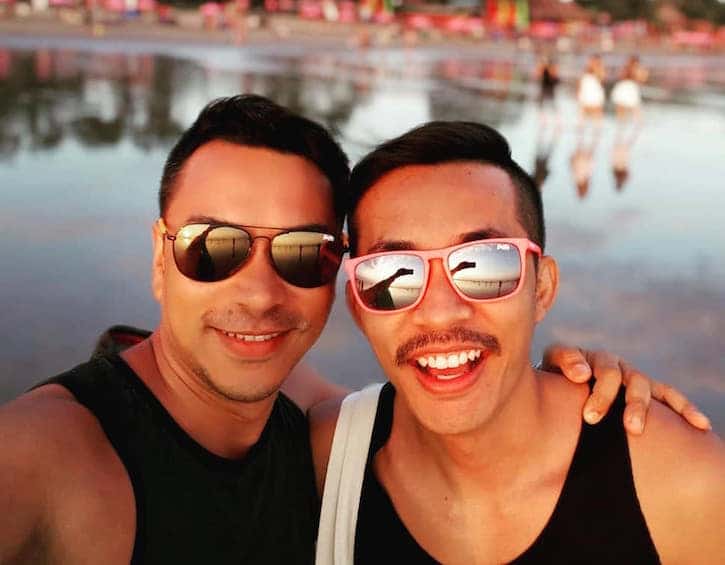
Faliqh
I identify as a Malay, cis-gender, gay man. My coming out process was not an easy journey. Growing up, the distinction between religion and culture tend to be blurred. There were many expectations to uphold. I was expected to lead a family and have a bloodline as any other Malay man. Being gay, it was considered taboo. Coupled with the fact that my parents were conservative, it was a constant struggle of sexuality and faith. During the early years of my life, my parents and I fought on a daily basis. There were prayer sessions to pray the gay away because my parents thought that I had a ‘jin’ (evil spirit) that needed to be exorcised. But of all the things done to me, one thing I can’t bear the most is the emotional blackmail. I was told that if I were to maintain my path as a gay man, my entire family would be dragged down to hell.
It was a daily struggle. But the only hope that had prevented me from getting married was my determination and rationality. I felt it was wrong of me to drag an innocent woman down to a path of an unhappy marriage just so I could regain my family’s honour. I realized later in life that talking to my parents calmly had helped in the process of them coming to terms with their son’s sexuality. It took 13 years for my parents to come to terms. And still today, it is an ongoing process for them. I do not blame them for what they have done in the past. I am sure they were as confused as I was.
My journey of self-discovery was also a journey for them too. My parents probably blamed themselves for their own ‘mistakes’ in parenting me. As Asians, we tend to hold back and bear the pain… out of shame. It was common knowledge that in order to save the family honour, queer children are often encouraged to get married, even if it is against their will, as having a queer child brings shame to the family and the entire community. My parents had mentioned they felt shameful to have a gay son.
If not for my partner of eight years, my story would have completely different from now. My parents had believed that the rainbow community was riddled with issues. My partner was the first and only person to approach them and slowly gain their trust. His first initiation to talk to them chipped away at their perception. I guess seeing how their son prospers and being in a healthy relationship…it slowly took away their fear. My only wish was that my parents could have not faltered under the pressure of society’s expectations. I felt that most of the problems were rooted in the lack of information available, which leads to shame and fear of the unknown. By sharing my coming out process today, I hope there will be robust discussions and increased awareness about and for parents with LGBTQI+ children. And hopefully, more LGBTQI+ children will gain acceptance and support.
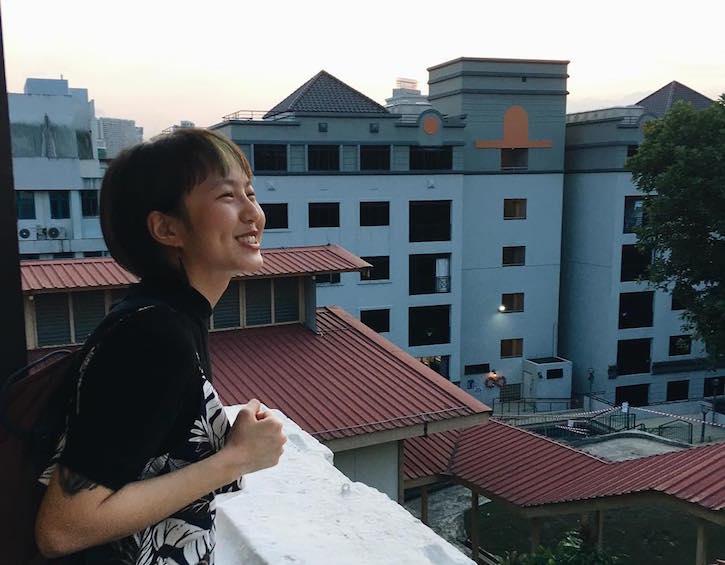
Tiffany
I was in a moving car when my mum told me she wanted to give me her “personal opinion” on something. She told me she hoped that I would “choose to be straight” and that she knew me better than I knew myself and that she knew I was “born straight”. She got increasingly angry nearing the house and she screamed at me telling me she never wanted to see or talk to me again. She also threatened to drag me to the psychiatrist. I hid in the toilet that night waiting for my sister to come home (she did!), terrified my mum would get physically violent. I never planned to be outed this way and I wish I could have told her in a different setting—definitely not a moving car, of course!
Before being outed, I did not think I minded my mum being ignorant, or unaccepting. I just yearned for indifference and if lucky, the smallest effort in wanting to understand, even if it is not fully genuine. I wished for them to be not in denial. In an ideal world, support would look like verbal and/or non-verbal acceptance—verbal would be great, but I really do not ask for much—them wanting to find out more on my behalf, doing their own research, and wanting to have constructive non-aggressive conversations with me. This would include feeling like they can approach me to ask questions to clarify certain concepts or ideas. I wish to be able to communicate my struggles and feelings with them without them getting visibly upset and angry. I wish they could be honest with me about their fears, insecurities and anxieties without unnecessarily raising their voice, or denying my person and sexuality, or wanting to drag me to the psychiatrist to eat medication every time they are unsure about me.
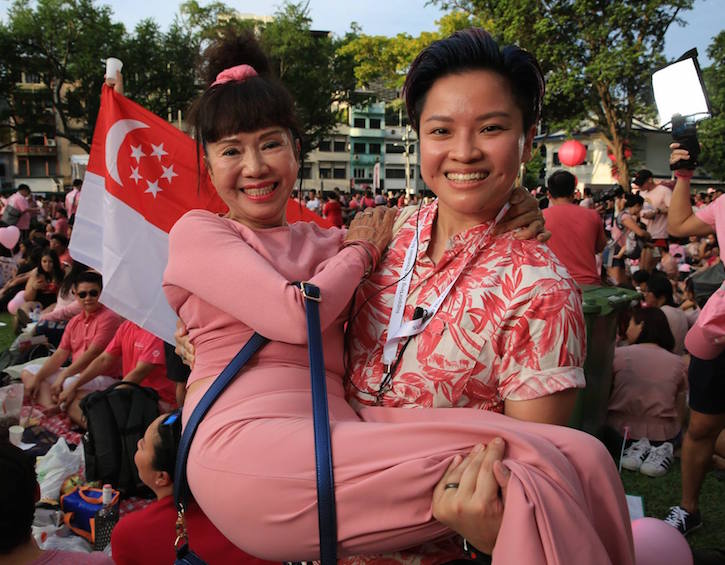
Ching
When I first realised that I was attracted to girls in primary school, I did not know what that feeling was. It was only in secondary school that I realized it wasn’t ‘normal’ but had no one to talk to. When I was 16, Internet resources on such topics were limited, and unlike western countries where LGBTQ people usually come out to their families first, it was the exact opposite in Asian countries like Singapore. I have always wished that I was able to talk to my parents about such things, but coming from a conservative Chinese family, it was impossible to do so. I could only rely on the family that I chose – my friends. They were the support system I had then, and even until now.
When I was in university and my mother suspected that I was gay, she threatened me with a chopper to never be a lesbian or she would be forced to do something drastic. She also constantly reminded me that gay people are promiscuous, are perverts (thank you, mainstream media!) and will die of HIV. Fortunately for me, by then I was studying far away in Australia and could be my authentic-self. When I finally came back to Singapore at 26, it was back in the closet for me again. I told myself that I would marry a guy out of convenience, just to please my parents as I was the only child. I only finally convinced myself that it was more important to live authentically and be myself at the age of 28, when I was finally done hiding. My mother also finally started to accept me for who I am, but still said many hurtful things about our community. I understand that the generation she grew up in is a different one, and the community has always been portrayed in a very negative light in their world.
I am now 36. My mother is finally able to accept me and current partner. She looks forward to us starting out own family–with kids. She cannot wait to be a grandmother, although she is unable to accept same-sex marriage as it is not recognised in Singapore. She has come for Pink Dot the last 2 years. If someone told me that things would turn out this way for me when I was a terrified 16-year-old, I would laugh in your face. But it has taken 20 years for this change to happen. I hope coming out and acceptance would be a much easier process for young people these days, and they do not have to wait as long as I did.
Read more: The Chiongs and the Challenges of Same-Sex Parenting in Singapore
Resources for parents who want to support their child/children’s coming out process:
- Oogachaga offers professional counselling for LGBTQ+ individuals, couples and families, including family members of persons who identify as LGBTQ+.
- Prout provides a one-stop guide to get regional LGBTQ+ support and counselling hotlines.
- The Same But Different: A Singapore LGBT Legal Guide For Couples & Families is a free guide aimed at empowering LGBTQ+ couples and families to address the legal issues commonly faced by them in Singapore.
- Rainbow Parents SG brings together members of the community living in Singapore with children, and provides information, support, and even playdates to LGBTQ+ parents and their families.
- Inter-University LGBT Network releases books and additional resources dealing with being trans in college, sexual assault awareness for LGBTQ+ youth, sexual health, and more






 View All
View All




 View All
View All





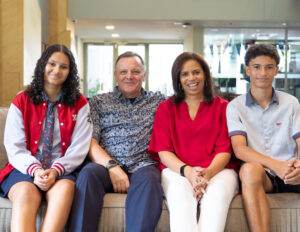



 View All
View All


